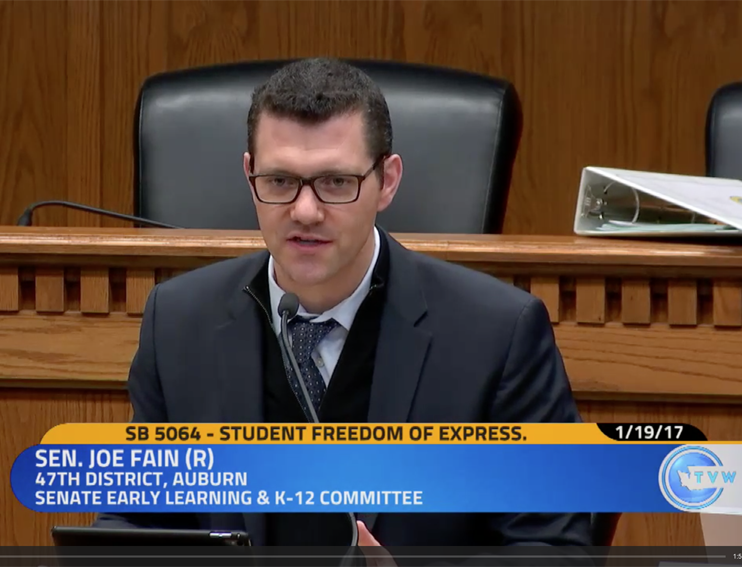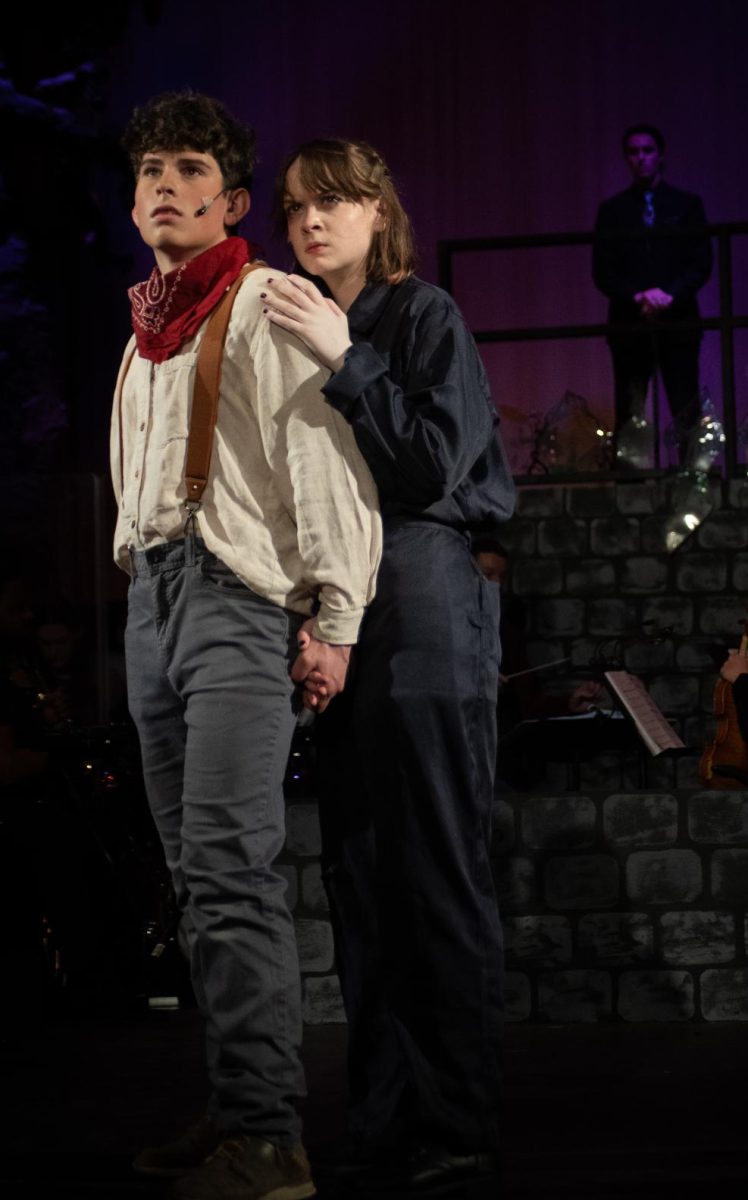Oscar Zhaner, Political Correspondent
Originally published February 2, 2017
A screen shot of Senator Joe Fain discussing the importance of Senate Bill 5064. The bill seeks to protect free press by limiting the possibility of administrative censorship of student media.
A Washington state senatorial committee convened last week to hear testimonies on Senate Bill 5064, a bill that would extend free press protections to school-sponsored media.
Closely associated with the nationwide “New Voices” campaign, the bill seeks to protect free press by limiting the possibility of administrative censorship of student media, regardless of whether or not the school is sponsoring said media.
This is the fourth time that legislation concerning student freedom of press has entered the Washington state senate, the other 3 having never made it past committee.
The most recent incarnation of the bill before this year’s was killed in committee, despite being recommended by commission, due to last year’s short session. This year, however, the bill will be introduced during a long session, giving its supporters hope that it will get through the rules committee.
The assembly drew turnout from student journalists, advisors and volunteers. The majority of the audience testified or registered as “pro,” or in favor of the bill passing.
“Censorship of student journalism takes away the authentic perspective of a student’s work, thus creating work that is not representative of the student, but of school administrators that want to maintain a certain PR,” said Ronnie Estoque, editor-in-chief of the Cleveland Journal, in his testimony.
The bill, however, has met opposition from the Washington State School Director’s Association, who seek to edit the bill to keep out language protecting student media at the high-school level, and the Association of Washington School Principals.
Jerry Bender, from the latter association, testified that he felt many student journalism advisors were inadequately trained, and that school principals needed to be included in the editing of student media as a necessary part of student safety.
“In short, if there’s going to be a plane crash, I want to be there when the plane takes off,” he said.
When asked if the bill increased the likelihood of “plane crash” scenarios, Mike Hiestand, of the Student Press Law Center, suggested that the legislation would improve the quality of student journalism, saying, “students in those states, where they have been given the right to publish stories that cover topics that are important to them, and cover them in a meaningful way, they’re the ones that are winning the awards.”
Vince DeMiero, advisor to Mountlake Terrace High School’s newspaper, The Hawkeye, argued that administrative censorship failed to protect the integrity of student journalism. “I don’t like the ‘plane crash’ analogy,” he said, “but, if a plane crashes in the woods, and no one’s there to report on it, did it happen?”

























